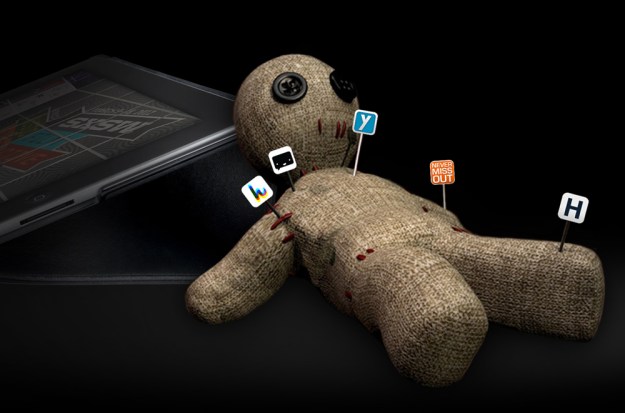
You hear that? Listen just a little harder. Yeah, that. That’s the sound of a million apps getting ready to launch. Friday marks the beginning of SXSW Interactive Week, the social and tech-focused portion of the Austin, Texas festival.
Yes, SXSW is full of the weird and the wonderful – but for all its unpredictable qualities, there is one thing about the event you can count on: An overhyped new social something.

But overshadowing these success are the launches of the past few years. A quick trip down SXSW memory lane turns up no shortage of failures. GroupMe was announced the “winner” of the festival in 2011, and has gone on to enjoy a very average amount of success. Hipster tried to leverage its SXSW cred into long-standing use, only to shut down this year. And last year, the conference just happened to fall during the frenzied height of SoLoMo (it still pains me to type that phrase), and a handful of location-reading, battery-draining, friend-finding apps hit the show – and none of them have been able to capitalize on the hype.
Take a quick look at these “best of” launch lists from the past few SXSWs. Not recognizing many? Which do you actually use? None of them? Yeah, exactly.
This isn’t to say that the SXSW top dogs of yesterday are doomed, but have we found ourselves another Twitter? Another Foursquare? Hardly. That’s because SXSW is cursed. Not in the making a voodoo doll of your ex (which I seriously have never done, I swear) way, but more in the “consequences of circumstance” way.
SXSW is a magical, scary, awesome place – but it’s not real. The people there aren’t your average people, the events are anything but normal, and there is no semblance of typical day-to-day life. You are surrounded by a throbbing mob of Instagram-addicted, check-in obsessed users; the kind of people who wait in line for the latest iPhone and update their OS the second it’s pushed out. And they’re running to events like the Haus of Hipstamatic brunch, or the Pandora Discovery Den. The whole thing is topped off by digitally relevant, hashtagging happy hours and after parties.
But we are witnessing an evolution in the types of startups and technology that are getting some spotlight, which could help. This year, hardware will get more attention as both Leap’s motion-control accessory and Lytro’s light-field camera experience quite a bit of hype, along with newcomers like Memoto (an automatic life-blogging camera) and PAR Works (which is unveiling a mobile augmented-reality system). We’re moving beyond the “app of the moment” model into more sophisticated, more interactive products – and also ones that have been building beyond a SXSW launch, not simply pushing a first iteration to make the show.
Still, even with hardware, venders need to remember that SXSW is not the real world. It’s more like Burning Man.
Speaking with Highlight co-founder and CEO Paul Davison at SXSW last year, I asked him what he thought about the heavy use of his app at the show. He said that while he was excited, he was also worried about the saturation, about what he called “a false sense of ubiquity” being created. All these people wanted to be part of a massive alpha test … and then we would go home and forget about it.
It’s the problem that plagues SXSW launches – vacation love. You fall in love with a place, a person, a thing – hell, an app – while you’re on vacation, where everything is more fun and nothing is normal. And then you go home, back to your routine, your schedule, your real life. And you log back into Facebook, into Twitter, into Instagram. It’s hard to be a disrupter in tech and social networking, and harder yet when you’re diving into a demographic that will never be anyone’s average target audience.






